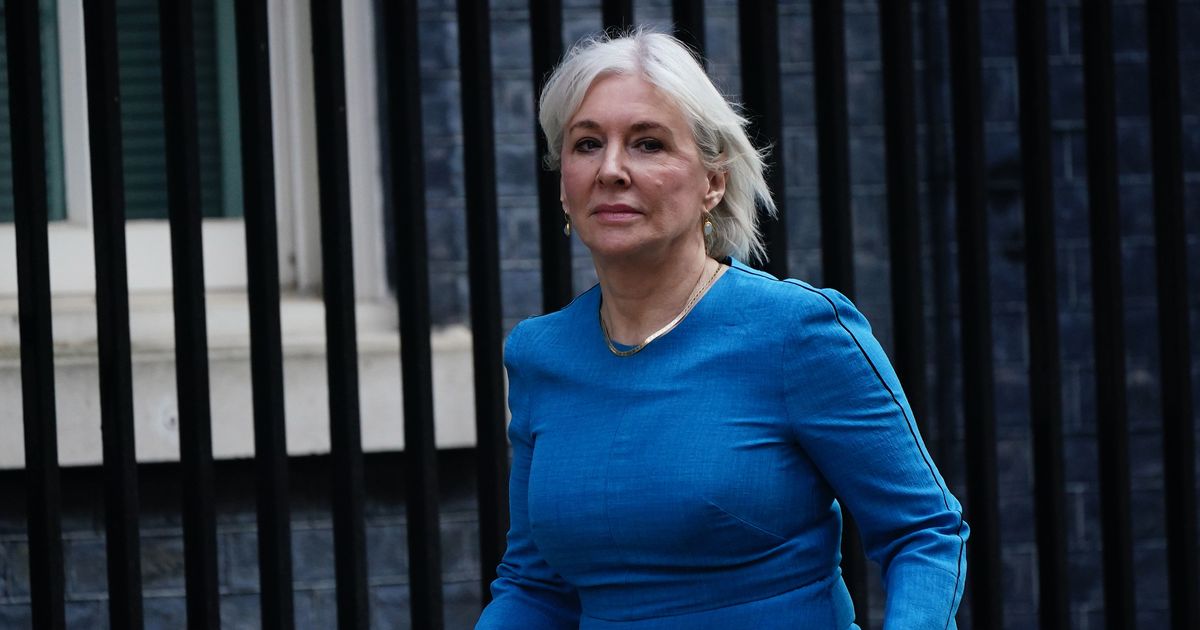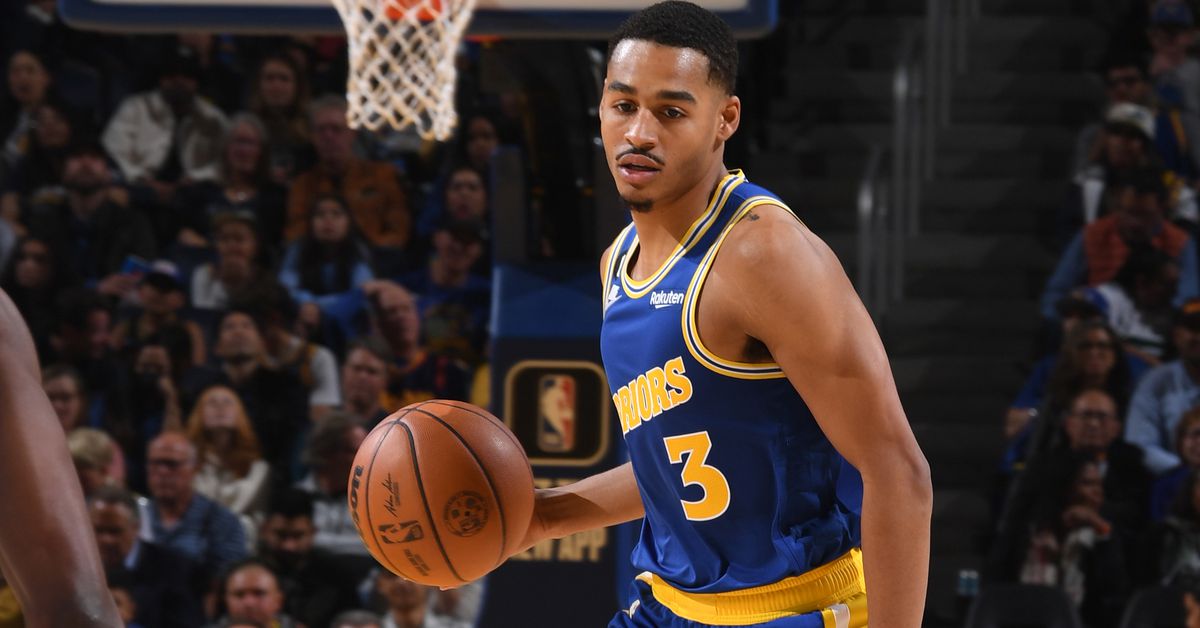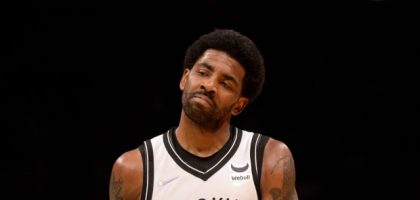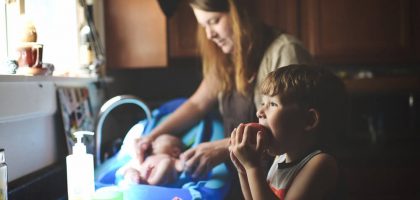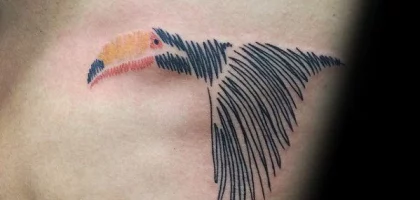If not for all the previous wonderful episodes of Reservation Dogs, the fourth episode of the new season of the show would look unusual.
The Hulu-exclusive FX comedy follows four Native teenagers who hang out on their reservation in rural Oklahoma while daydreaming of escaping to a more glamorous life in California: would-be group leader Bear (DPharaoh Woon-A-Tai), actual group leader Elora Danan (Devery Jacobs), the reserved Willie Jack (Paulina Alexis), and the cordial Cheese (Lane Factor). The series’ first season, which was developed by Sterlin Harjo and Taika Waititi, was among the best TV shows of the previous year because it focused on indigenous characters in a way that other media had so infrequently done.
The series has a small-but-huge feeling about it. Even if the kids’ lofty ambitions never materialize, there is a real sense that their worlds are in jeopardy with each choice they make. The show parodies how popular culture portrayed Native characters throughout the last century through the ghost of 19th-century warrior William Knifeman (played by comedian and current Reservation Dogs writer, Dallas Goldtooth), even as it treats the concepts of spirits, curses, and other paranormal phenomena with the utmost seriousness. Even though there has been a slight increase in shows with indigenous leads like Peacock’s Rutherford Falls and AMC’s Dark Winds, it is a series that feels endearing, unforgettable, and unlike anything else on television (whose star Zahn McClarnon continues his recurring role here as idiotic local cop Big).
The fourth episode, titled Mabel, will feature the reservation coming together to bid a final farewell to a community elder who is passing away. It is totally gorgeous and contains equal amounts of dry wit, tragic melancholy, and kitchen montages. However, the episodes that have come before it this season are excellent in and of themselves, and they served as the impetus for a lengthy interview last week between Rolling Stone and Sterlin Harjo on all the elements that go into making Reservation Dogs so exceptional.
Prior to Reservation Dogs, you had never written for scripted television. What did you discover while producing that initial season? It was somewhat balanced with the statement “Yes, I hadn’t done scripted TV.” But I believe that was slightly in my favor. I believe it contributed to making the show special. You simply grow better at writing for television economically. You simply come to the realization that you don’t have much time to meander. At this point, I can read a script and say, “We don’t need this. We don’t need that.” Additionally, an FX show has a somewhat distinct style from other series. It’s extremely traditional in the sense that you watch the fallout from the setup that occurs immediately away. Setting everything up might take a little longer if I were working on a feature. But I adore the way in which a world is dropped into and then immediately set in motion.
You’re right that there isn’t much time for meandering, but some of my favorite scenes in the program involve rambling. You’ll perform these episodes, where very nothing seems to happen, in such a captivating manner. How do you manage that? I believe it is due of how we created this world. And the globe is precisely why I cherished my family’s narrative style. Native Americans, in my opinion, have a really fantastic manner of presenting stories, which I’ve always wanted to emulate. When I was a child, I recall listening to my family share the simplest tale about going to the grocery store. However, the story would be told in such a grand scale and with such a large cast. For example, they passed a quirky oddball on the way and then another individual who they believe is casting curses on others. It’s just brimming with mythology and life. That’s what I wanted to accomplish with this; I wanted to make a story that appears straightforward and has little action, but in reality has a lot of characters and events that are riding in the background.
These four young performers, who have varied levels of experience, were cast. How did you determine what each of them was capable of? Much of that can be attributed to the fact that I am an independent filmmaker who has cast members of my family and non-actors for years. I discovered how to collaborate with them and how they complement one another’s skills. Therefore, all of that served as a Reservation Dogs training ground. They all approach things in such disparate ways. It can be difficult to get Lane to lock in at times. His instincts are frequently so spot on that you should just try not to interfere with it too much. When Devery enters the room, she is so prepared and ready to shoot that you can get a variety of takes from her. She is a great partner to work with on your goals. You just need to kind of stay out of her way, Paulina, and give her space to be who she wants to be. Every addition she makes will be fantastic.
DPharaoh is internally very, very strong. We put a lot of effort into these scenarios, and if something doesn’t go as planned, he can become really depressed. It’s never due to poor performance or anything else; we’re just looking for this location. DPharaoh, however, takes it extremely seriously and doesn’t want to let anyone down. Reminding him that we’re having fun with him is important. Amazingly, DPharoah can accomplish nothing, yet you find it interesting to watch. There is no finer quality for a main character than the ability to just observe them. He just has such wonderful reflexes, and he is really familiar with that character. Simply providing him the room to spread out and do all of that will suffice.
Devery Jacobs, image
FX/Shane Brown
This season, you invited Devery to the writers’ room. Why did you assume she needed to be in front of the camera as well as there? Bringing her into the writers’ room was a no-brainer. She is an incredibly skilled storyteller and filmmaker. In Season One, there were times when she would simply and courteously raise a problem and a solution, and that’s what you want in a writer. Additionally, it was a great opportunity for her to enter and fully flesh out the character of Elora Danan because she is so familiar with it. I was ecstatic and proud of her work the moment she turned in a draft. She’s such a talented author.
When I visit writers’ rooms, the main problem is frequently how to present a narrative that audiences have seen a million times in a fresh way. But before these recent years, there were hardly any television programs that emphasized Native characters. What kind of benefit does that provide for you? It has so many benefits. We have the chance to introduce people to a world that they have never heard of before. Most television show writers want to achieve that with their work. I want it to be so exceptional that viewers lean in and ask questions, and you have them in the palm of your hand. That is something we have right away. That is extremely difficult to get wrong. We also have quality writing on top of it.
Since cultures are not uniform, there are writers from many racial and geographic backgrounds. What happens when you’re working on a story and some of the writers have had different experiences with that specific idea? We adhere to the tribe on which the fiction is based, which is mine. Editor’s note: Harjo is a descendant both of the Muskogee and the Seminole Nations of Oklahoma. That serves as the compass, but whenever there is a point of convergence, we attempt to seize the characteristics that all of our cultures share. People will relate to something if it is really special to another place but we aim to uncover what is universal to all of our areas. When we do that, it makes sense to non-Natives as well.
Mabel, your fourth episode from Season Two is amazing. What particular details did you want to make sure you covered in that half-hour? Everyone has experienced the phenomenon of gathering with others to bid someone farewell in our neighborhoods. It was based very specifically on what we did for my granny. The layout of a home extremely similar to the one we filmed in is exactly the same. It is therefore based on that, although Devery and I co-wrote it, and some of that was also her experience. We would draw on everyone’s experience because we all had someone passing in common with us. We had all experienced losing a loved one, which was a similar event.
Like so many of the episodes you produce, this one has a wonderfully erratic tone, with sections that are both incredibly sad and incredibly humorous. How do you keep that up? I am not aware of any alternate methods. The tone and aesthetic, in my opinion, have a really Native American feel. Drama and sorrow have always coexisted with our humor. Our humor served as a coping strategy. It served as a means of survival in trying times. Therefore, it has become engrained in the way I perceive the world. I can’t imagine doing anything else. When I approach an episode like that, I don’t anticipate it being overly depressing. We’ve had some of the funniest and most hilarious times at funerals because we all gather together. I couldn’t possibly have made it with just one note, in my opinion. It wouldn’t have seemed appropriate. It would have been pointless to mention. It always seems really artificial to me when I see anything like that, something that’s merely dramatic. Being both humorous and dramatic at the same time seems extremely authentic.
Dallas Goldtooth image
FX/Ryan RedCorn
Even though the show takes the more general concepts of Native spirituality extremely seriously, William Knifeman’s ghost never fails to make me smile everytime he appears. What generalizations would you like to make about that feature of the culture? Westerns have consistently misunderstood our sense of comedy. Back then, there were undoubtedly characters who made jokes and pretended to be more sophisticated than they actually are, like William Knifeman. That persona, in my opinion, serves as a reminder that we are all flawed but also turns the stereotype on its head and admits that it contains some elements of reality. Because that is the image they are used to, I believe that persona makes it easier for individuals who are not familiar with contemporary Native stories to be welcomed into that world and become accustomed to the comedy. Whether they like it or not, the picture people are used to seeing resembles William Knifeman more than it does me. Inviting them in, it then demonstrates the humor and declares, “We can laugh at this together.” It’s essential, in my opinion, that a non-Native audience be able to laugh and roll with the jokes.
But he’s also saying genuine things through his humor. He discusses grieving for the lost in our third episode of this year. He speaks while in a porta-potty, but what he has to say about how we, as an indigenous people, develop as a result of losing someone is very great. And occasionally, the important things he says take the shape of his advising you to do the exact opposite. Therefore, you must sort of determine whether he is telling the truth or not.
Am I right in thinking that characters use the word “shitass” much more frequently this season than they did in the previous one?
Without a doubt. In Season Two, we’ve increased the shitass factor by 20 percent.
Why?
You should, in my opinion, up the stakes.
Is there a limit to how much shitass is acceptable? Do you ever find yourself telling the actors in a scene to tone it down because they are talking too much? Oh, we got rid of a lot of trash. Is there a surplus of shitasses present? we might inquire during certain conversations. Let’s remove this. As a result, this season will have some episodes without shitasses. Be at ease.
The response to that word has appeared quite strong to me, people responding, Oh, this is a new swear word. I can utilize this. Actually, Zahn is the one who says it so effortlessly. In Season 2, Episode 102, it was an improvisation. Then I had other people say it, and I finally thought that others should be saying it to the kids. I simply kept having him repeat it. When is there a chance to bring a word back while changing culture? I believe it’s wonderful. At least we are acting appropriately.
Gary Farmer,

Wes Studi, and Paulina Alexis
The characters consume a lot of food from Sonic. Why? I grew up eating there, and it’s just local. Small towns all have one. I’ve been giving them a lot of free publicity, so eventually they’re going to require me to direct some of their commercials or something. Or at the very least, a limitless gift card to Sonic.
There are many cast and crew members that have worked on both Dark Winds and your program, as well as Rutherford Falls, which you share Zahn with. Some people have experience with all three. How much do you communicate with the show’s producers to make sure everything runs smoothly? Yes, we are all acquainted. And the pool of Native performers isn’t particularly large. Yet we kept making more. Now that there are actual opportunities, there will be increased interest. However, we all interact and are acquainted. We all work with the same authors, directors, actors, casting directors, and other professionals. As a result, we constantly communicate and look for available individuals. We converse.
And it’s a good thing that three distinct kinds of Native shows are airing simultaneously on television, right?
Of course. And I anticipate that more will be released. The variety of the stories is going to wow everyone, in my opinion. It’s thrilling.
On Hulu, you can watch the first two episodes of Reservation Dogs Season Two. New episodes will be released every week.




